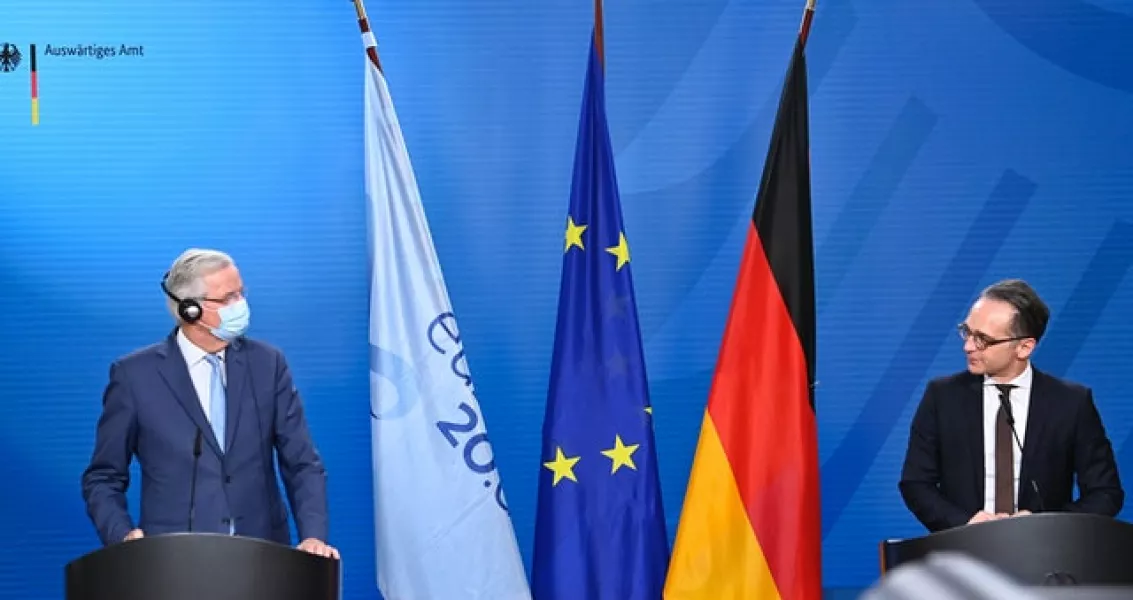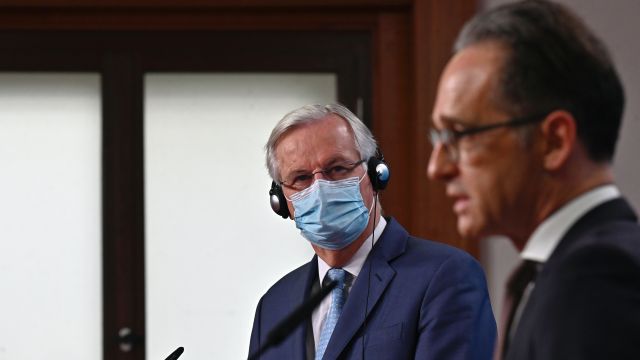German Foreign Minister Heiko Maas said on Monday that Covid-19 has “made an agreement even more urgent” for both sides, even though the chances to get even a basic trade deal by the end of the year are declining by the day.
Prime minister Boris Johnson and the head of the EU told their chief negotiators over the weekend to get back together and push “intensively” to strike a post-Brexit trade deal before time runs out in a matter of weeks.
Mr Johnson has set a deadline of October 15, when EU leaders meet again in Brussels, while the 27-nation bloc itself said it would be feasible to negotiate until the end of the month.
After Britain left the EU on January 31, it remains in a transition period until the end of the year to make sure trade keeps flowing.

If there is no trade deal by then, many fear a cliff-edge departure would hurt the economies on both sides and put hundreds of thousands of jobs at risk due to economic uncertainty, tariffs and red tape.
Germany, France, the Netherlands and Belgium stand to take a big blow if there is no deal, however rudimentary. The EU has insisted that any economic setback would be even bigger in Britain.
Still Mr Johnson has repeatedly said that Britain will thrive even if it ends the transition period without a deal.
But economists disagree, saying a no-deal exit would be a heavy blow, introducing tariffs and other barriers to trade with the EU, which accounts for almost half of the UK’s trade.
“Our door remains open for a close and ambitious partnership with Great Britain. That is and will remain our goal,” said Mr Maas.
Talks have been soured by Britain’s decision last month to introduce a bill that breaches the legally binding divorce agreement it struck with the bloc less than a year ago.
Mr Maas and German Chancellor Angela Merkel met with EU chief Brexit negotiator Michel Barnier on Monday.







